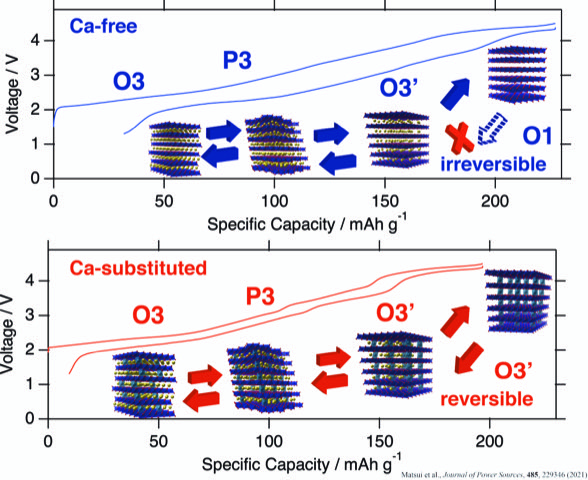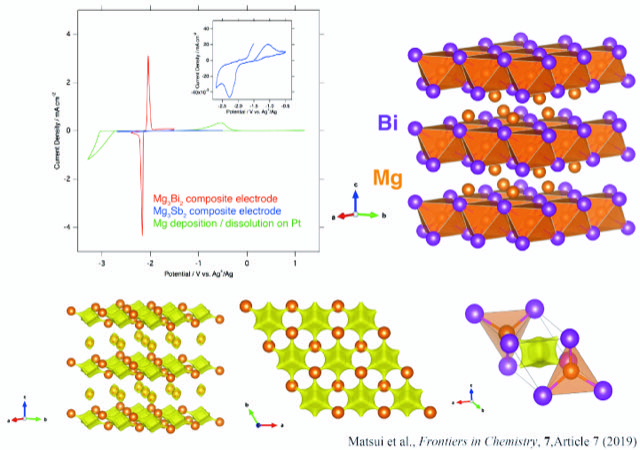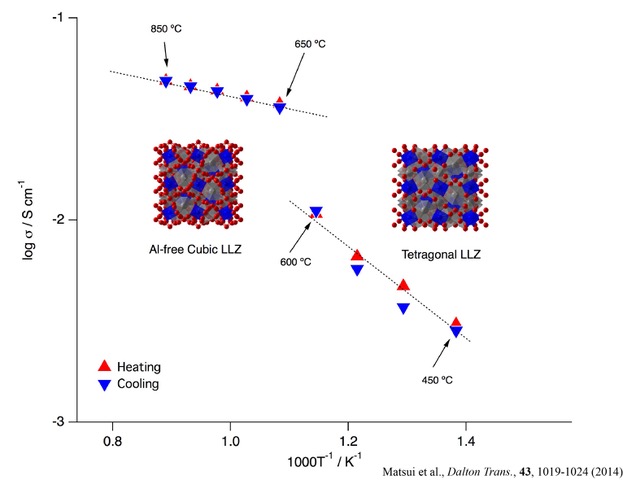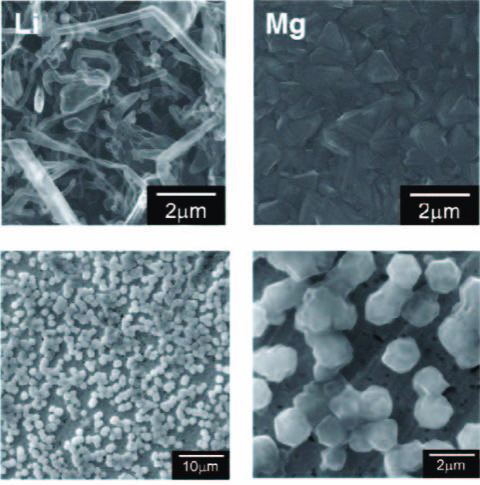Research
Solid-state ionic materials for next-generation battery applications
Our research interest is based on “Solid-State Ionics” dealing with ionic conductive materials. Finding novel solid-state ionic materials leads to innovative battery systems. We explore and design novel solid-state ionic materials with sodium and magnesium as carrier ions to develop beyond lithium-ion batteries.
Low-temperature synthesis of complex metal oxides
Complex metal oxides are typically synthesized at a high temperature of >1000 °C via the conventional solid-state reaction because metal ion diffusion in the solid phase requires high energy. We recently developed a new synthesis process named “hydroflux process, ” enabling us to obtain the layered lithium cobalt oxide at 300 °C within 30 minutes. Understanding the phase stability and reaction pathway of complex metal oxides becomes essential knowledge for the development of effective synthetic processes.
Crystal growth mechanisms in less noble metal electrodeposition
Rechargeable batteries using the electrodeposition/dissolution process of metals have never been successful in commercialization because of uneven electrodeposition of metals, leading to the short-circuit of the cell. We have been studying the crystal growth process of magnesium metal, which shows uniform surface morphology. We aim to understand the key factors determining the crystal growth process of less noble metals to control the surface morphologies.

Improved phase stability of P3 type layered cathode active materials for Na-ion battery via Ca substitution.

Electrochemically reversible Mg3Bi2 intermetallic anode and visualized Mg2+ diffusion pathways by BVS mapping.

Reversible phase transition of garnet-type lithium ion conductor: Li7La3Zr2O12 and its ionic conductivity.

Comparison of the surface morphology of lithium metal (top left) and magnesium metal (top right) deposited at same current density of 2 mA cm-2.
